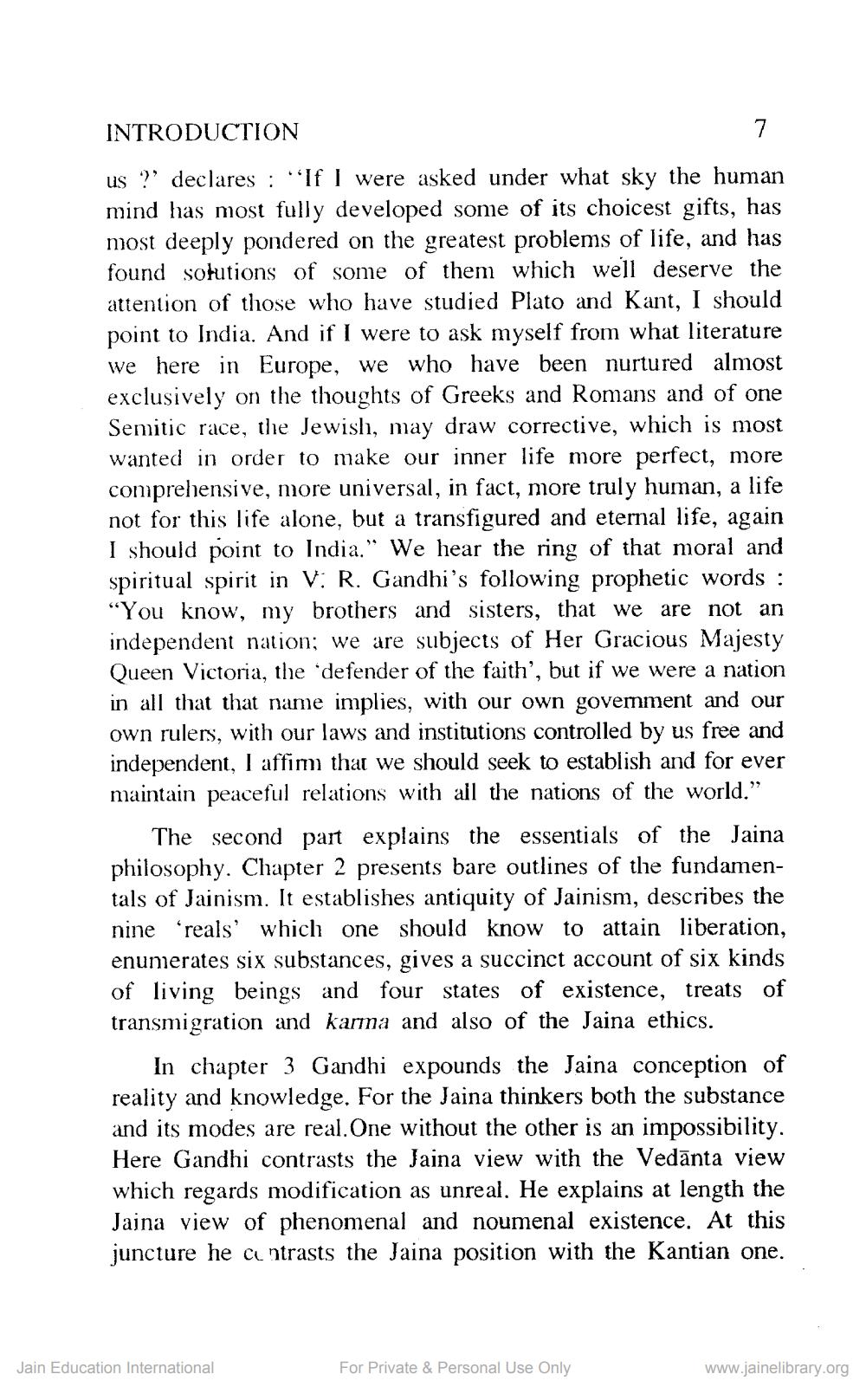________________
INTRODUCTION
us ?' declares : "If I were asked under what sky the human mind has most fully developed some of its choicest gifts, has most deeply pondered on the greatest problems of life, and has found solutions of some of them which well deserve the attention of those who have studied Plato and Kant, I should point to India. And if I were to ask myself from what literature we here in Europe, we who have been nurtured almost exclusively on the thoughts of Greeks and Romans and of one Semitic race, the Jewish, may draw corrective, which is most wanted in order to make our inner life more perfect, more
nprehensive. more universal, in fact, more truly human, a life not for this life alone, but a transfigured and eternal life, again I should point to India.” We hear the ring of that moral and spiritual spirit in V: R. Gandhi's following prophetic words : “You know, my brothers and sisters, that we are not an independent nation; we are subjects of Her Gracious Majesty Queen Victoria, the defender of the faith', but if we were a nation in all that that name implies, with our own government and our own rulers, with our laws and institutions controlled by us free and independent, I affirm that we should seek to establish and for ever maintain peaceful relations with all the nations of the world."
The second part explains the essentials of the Jaina philosophy. Chapter 2 presents bare outlines of the fundamentals of Jainism. It establishes antiquity of Jainism, describes the nine 'reals' which one should know to attain liberation, enumerates six substances, gives a succinct account of six kinds of living beings and four states of existence, treats of transmigration and karma and also of the Jaina ethics.
In chapter 3 Gandhi expounds the Jaina conception of reality and knowledge. For the Jaina thinkers both the substance and its modes are real. One without the other is an impossibility. Here Gandhi contrasts the Jaina view with the Vedānta view which regards modification as unreal. He explains at length the Jaina view of phenomenal and noumenal existence. At this juncture he a atrasts the Jaina position with the Kantian one.
Jain Education International
For Private & Personal Use Only
www.jainelibrary.org




